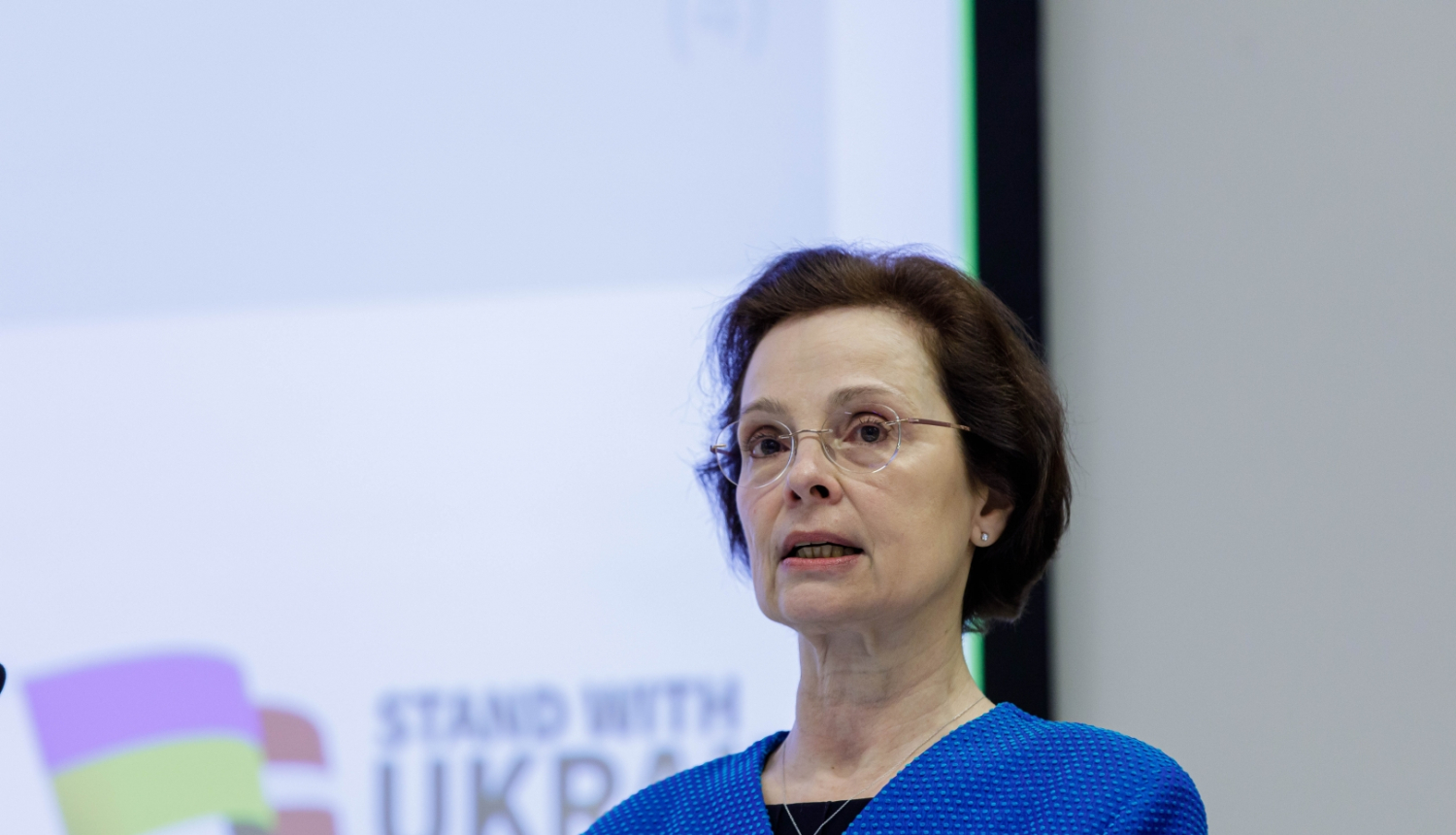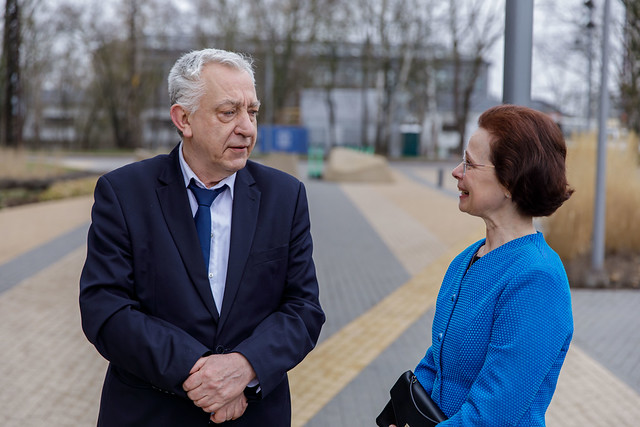Dear Dr. Olafs Libermanis,
Dear Dr. Mārtiņš Malzubris,
Dear colleagues,
Distinguished guests,
Ladies and gentlemen,
It is a true honour to me and a bit of a surprise, to be invited to participate at the first Military Surgery Forum in Riga. As a gynaecologist and obstetrician and lifelong civilian, my curriculum vitae doesn’t quite fit any of your categories.
Last year, the 24th of February changed the world many of us took for granted. Peace in Europe was no longer something we were lucky enough to enjoy.
The last war that devasted the whole of Europe and left it in ruins ended 1945, 78 years ago. While the following three/four generations grew up with economic, educational, healthcare and other challenges, they did so without the fear of bombs falling from the sky, seeking refuge in shelters or fleeing their home countries.
Russia’s war against Ukraine has brought back brutal and dark times. It has also awakened distant but never forgotten memories to people in the Baltic states, Poland, Finland and other countries.
Memories of murdered innocent civilians, of inhumane deportations to Siberia, of the loss of our state independence.
In these dark times, the courage of the Ukrainian population in resisting Russian aggression and fighting for their independence has been an inspiration and a reminder for many of us.
A reminder for politicians to isolate Russia politically, economically and socially.
A reminder for entrepreneurs to cut all ties and trade with Russia.
A reminder to athletes to refuse to compete with Russian athletes.
And a reminder to medical professionals to provide care to those in need.
Since the beginning of Russia’s war against the people of Ukraine, Latvian medical institutions have been offering help and support in a number of ways.
The Latvian NGO MARTA is supporting a centre in Ivano-Frankivsk for women and girls who have suffered sexual violence during the war. Along with providing physical and mental health services, the centre is recording testimonies for use at future trials for Russian war crimes.
The Children’s Clinical University Hospital in Riga is supporting the Ohmatdyt hospital Children’s Clinic in Kyiv. Acute and chronically ill children in Ukraine are suffering due to the destruction of infrastructure and lack of available medical assistance.
Help is being offered from Latvia’s resource centres for children and young people with mental health issues. Sadly, it is not a question of whether the Ukrainian children and young people who witnessed atrocities will suffer mental health issues, but rather, to what extent. The help Latvia’s resource centres provide will be valuable in building Ukraine’s future after the war.
There is support from our leading rehabilitation centre, Vaivari. Since 2014, Ukrainian military staff and civilians have been receiving physical rehabilitation after amputations. Vaivari has helped them to learn how to use their prosthetics and continue to live a normal life. Additionally, the centre chose the same approach as today’s forum. Vaivari’s medical staff have been sharing their knowledge and skills with their Ukrainian colleagues, both in Latvia and Ukraine. The exchange of knowledge has been enriching for both sides.
At the very beginning of the war, two Latvian microsurgeons, Dr. Olafs Libermanis and Dr. Mārtiņš Malzubris, drove to Kyiv to save the lives of Ukrainian soldiers in need of surgery.
In the summer of 2022, when I was invited by the First Lady of Ukraine, Olena Zelenska, to witness the atrocities in Bucha and Irpin, I met Dr. Olafs Libermanis for the first time.
One of his statements impressed me deeply.
He told me that amputating a limb is a rather quick and straightforward procedure, but saving a limb requires long hours of complicated surgery. However, he saw these long hours as an investment – not only in the lives of the young men and women he was operating on, but also in the future of Ukraine’s post-war society.
As with all wars before, this war will also end. But the image of amputated veterans is a depressing and permanent reminder of a war that should never have happened.
As a child, I remember seeing WWII survivors with missing arms and legs. I remember their simple wooden prostheses. It was a sad scene.
On the same occasion Dr. Olafs Libermanis showed me the sutures microsurgeons are using. As a gynaecologist and obstetrician, I have sutured abdominal and post-delivery injuries, however, I have never used such delicate sutures – they were too small to see with the naked eye.
Historically, the way of warfare is always changing. The Punic wars were different to Napoleon’s wars, WWII was different to the Vietnam war. Somehow, mankind is always capable of creating new weapons, but is rarely able to the solve the associated humanitarian crises. These new weapons cause a greater variety and complexity of injuries, and these injuries demand different and innovative surgical approaches.
Your goal of strengthening modern microsurgery and educating Ukrainian surgeons by learning from war-experienced colleagues is well worth supporting. It will save lives during the war and bring value to the Ukrainian society in peacetime.
Russia’s aggression against Ukraine has brought so much pain, sorrow and death. For the universal sense of justice and even more, justice for the Ukrainian people, there has to be a tribunal revealing and condemning all Russia’s war crimes.
I hope you have interesting discussions and case presentations, find many supporters and realize your projects.
Thank you all!





